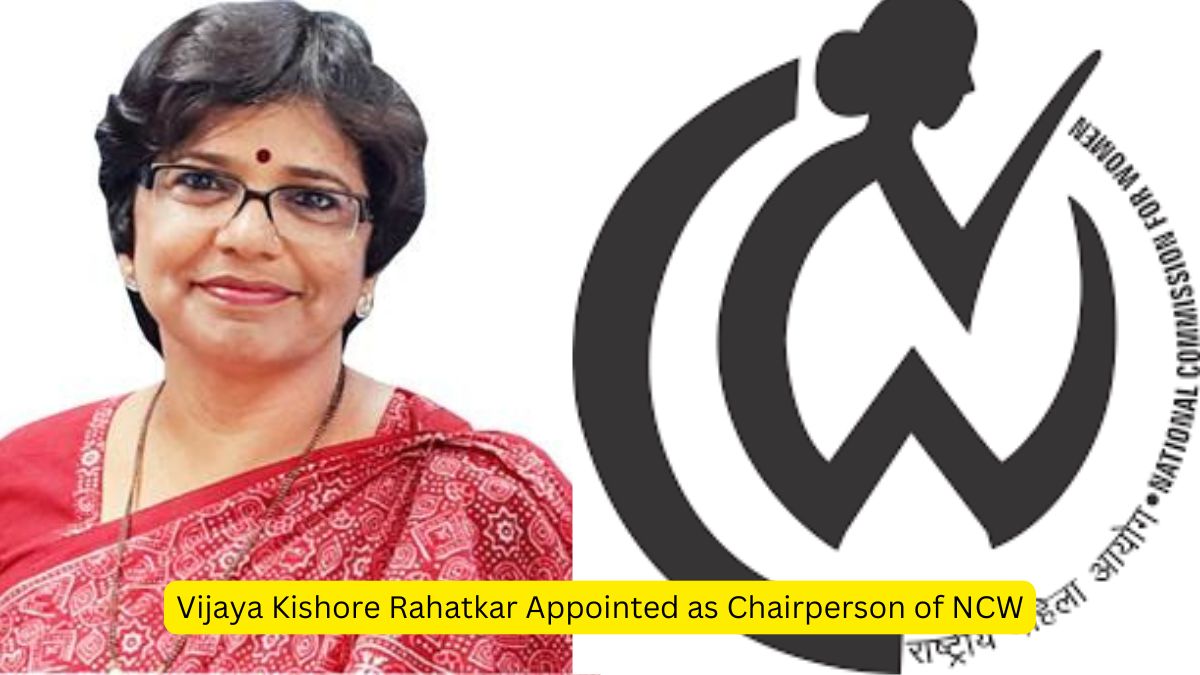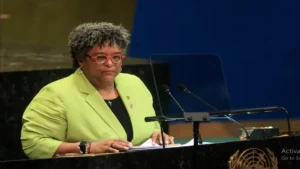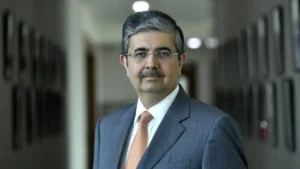Smt. Vijaya Kishore Rahatkar has been appointed as the new Chairperson of the National Commission for Women (NCW), making her the 9th individual to hold this esteemed position. The announcement was made by the Narendra Modi government, highlighting a commitment to advancing women’s rights and issues in India.
Tenure Details
- Her appointment is effective immediately and will be for a period of three years or until she reaches the age of 65, whichever comes first.
Previous Roles
- Chairperson of Maharashtra State Commission for Women (2016-2021) : Smt. Rahatkar led several impactful initiatives aimed at women’s empowerment:
- “Sakshama”: A support program for acid attack survivors.
- “Prajwala”: Linking self-help groups to central government schemes.
- “Suhita”: A 24×7 helpline service for women.
- Focused on legal reforms addressing issues like the Protection of Children from Sexual Offences Act (POCSO), anti-triple talaq efforts, and anti-human trafficking units.
Digital Literacy and Publications
- Introduced digital literacy programs and launched a publication titled “Saad,” focusing on women’s issues.
Political Background
- Served as the Mayor of Chatrapati Sambhajinagar from 2007 to 2010, implementing significant healthcare and infrastructure projects.
Educational Qualifications
- Holds a bachelor’s degree in Physics and a master’s degree in History from the University of Pune.
Authorship and Recognition
- Authored several books, including ‘Vidhilikhit’ (on women’s legal issues) and ‘Aurangabad: Leading to Wide Roads’.
- Received accolades such as the National Law Award and the Savitribai Phule Award from a national literary council for her contributions to women’s empowerment.
New Member Appointment
- Alongside Smt. Rahatkar, Dr. Archana Majumdar has also been appointed as a member of the NCW.
National Commission for Women
- The National Commission for Women (NCW) is an autonomous and statutory body established in 1992 under the National Commission for Women Act, 1990, to protect and promote women’s rights in India.
- It is responsible for reviewing and addressing issues related to the rights of women and for making recommendations for the protection and promotion of these rights.
NCW Composition
- As per Section 3 of the National Commission for Women Act 1990, the Commission shall consist of a Chairperson, 5 Members, and a Member-Secretary who are nominated by the Central Government.
Chairperson
- Committed to the cause of women
5 Members
- Amongst persons of ability, integrity, and standing who have had experience in law or legislation, trade unionism, women’s voluntary organizations, administration, health, education, etc.
- Note: At least one Member shall be from amongst persons belonging to the Scheduled Castes and Scheduled Tribes, respectively.
Member-Secretary
- An expert in the field of management, organizational structure, or sociological movement (or) an officer who is a member of a civil service of the Union or of an all-India service or holds a civil post under the Union with appropriate experience.
Term : The Chairperson and every Member shall hold office for a period of three years.
Removal : The Central Government may by order remove the Chairperson or any other Member from office if the Chairperson or any other member,
- Is adjudged insolvent.
- Engages during his term of office in any paid employment outside the duties of his office.
- Refuses to act or becomes incapable of acting.
- Is of unsound mind and stands so declared by a competent court.
- Has so abused his office as to render his continuance in office detrimental to the public interest.
- Is convicted and sentenced to imprisonment for an offense which in the opinion of the Central Government, involves moral turpitude.
NCW Powers
The Commission, while investigating, shall have all the powers of a civil court in respect of the following matters,
- Summoning and enforcing the attendance of any person from any part of India and examining him/her on oath.
- Requiring the discovery and production of any document.
- Receiving evidence on affidavits.
- Requisitioning any public record or copy thereof from any court or office.
- Issuing commissions for the examination of witnesses and documents.
| Summary/Static | Details |
| Why in the news? | Smt. Vijaya Kishore Rahatkar has been appointed as the new Chairperson of the National Commission for Women (NCW) |
| Tenure | Effective immediately; tenure for 3 years or until age 65, whichever comes first. |
| Previous Roles | – Chairperson of Maharashtra State Commission for Women (2016-2021)
– Led initiatives like “Sakshama,” “Prajwala,” and “Suhita” for women’s empowerment. – Focused on legal reforms (e.g., POCSO, anti-triple talaq, anti-human trafficking). |
| Authorship and Recognition | – Authored books like ‘Vidhilikhit’ and ‘Aurangabad: Leading to Wide Roads.’
– Received National Law Award and Savitribai Phule Award. |
| New Member Appointment | Dr. Archana Majumdar appointed as a member of the NCW. |
| About NCW | – Autonomous body established in 1992 under the National Commission for Women Act, 1990.
– Focuses on promoting and protecting women’s rights in India. |
| NCW Composition | Chairperson, 5 Members, and a Member-Secretary nominated by the Central Government.
– Members must have experience in law, legislation, trade unions, voluntary organizations, etc. |
| Term & Removal | – Chairperson and Members serve for 3 years.
– Removal possible on grounds such as insolvency, conflict of interest, incapacity, or moral turpitude. |




 Mia Mottley Secures Historic Third Term ...
Mia Mottley Secures Historic Third Term ...
 RBI Approves 3-Year Extension for Sanjay...
RBI Approves 3-Year Extension for Sanjay...
 Uday Kotak Appointed Chairman of GIFT Ci...
Uday Kotak Appointed Chairman of GIFT Ci...








